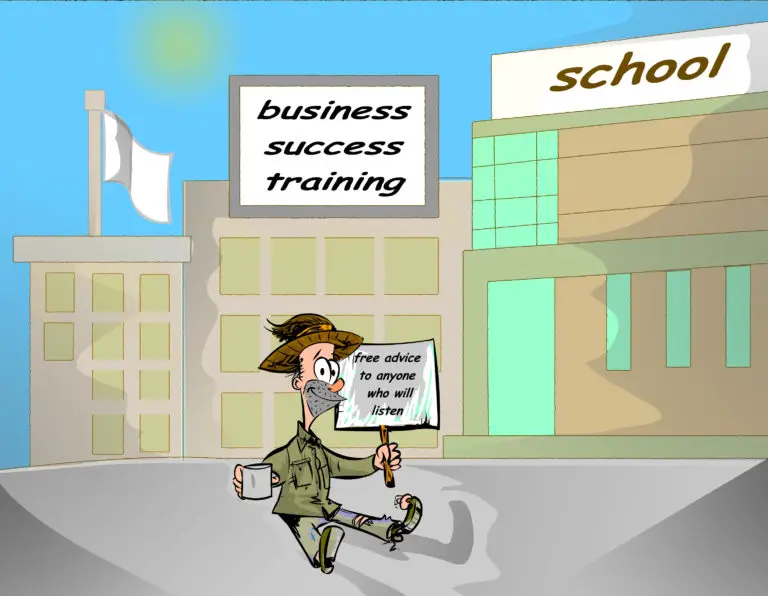Can I Get a Job with a Felony on My Record? (How to overcome your conviction)
Let’s face it – job hunting is tough. But when you’re trying to land a job with a felony conviction on your record, it can feel like climbing Mount Everest in flip-flops. The good news? It’s not impossible. In fact, with the right approach, you can turn your experience into a stepping stone rather than a stumbling block.
In this guide, I’ll walk you through the challenges you might face when you have a criminal record, share some inspiring success stories, and give you practical, actionable tips to help you land that job. So, take a deep breath, grab a cup of coffee, and let’s dive in as I answer the question if you can still get a job with a felony on your record.
Table of Contents
- The Reality of Job Hunting with Felony Convictions
- Common Challenges To Find Employment and How to Overcome Them
- Industries More Open to Hiring Felons
- Success Stories: It’s very much possible!
- Tips and Tricks for Your Job Search
- Your Rights: What Employers Can and Can’t Ask
- Building a Strong Support Network
- Actionable Strategy: Your Step-by-Step Guide
- Resources to Help You on Your Journey
- Conclusion: Your Past Doesn’t Define Your Future
The Reality of Job Hunting with Felony Convictions
Let’s not sugarcoat it – having a felony conviction on your record can make job hunting more challenging. According to a 2018 study by the Prison Policy Initiative, the unemployment rate for formerly incarcerated people is nearly five times higher than the unemployment rate for the general United States population.
But here’s the thing: challenging doesn’t mean impossible. Many employers are becoming more open to hiring job applicants with criminal records, recognizing the value of giving people second chances. In fact, movements like “Ban the Box” are gaining traction, aiming to remove barriers to hire employees with criminal records.
Common Challenges To Find Employment and How to Overcome Them
- Background Checks: Many employers conduct background checks for those seeking employment. Be honest about your past and be prepared to explain how you’ve grown since your conviction.
- Gaps in Employment: If you’ve been incarcerated, you might have gaps in your work history. Focus on skills you’ve gained during this time, including any education or training programs you completed. Check out this article as well.
- Legal Restrictions: Some prior convictions may legally bar you from certain professions. Research your state’s laws and focus on industries where you’re eligible to work.
- Self-Doubt: It’s easy to feel discouraged, but remember: your past doesn’t define your future. Stay positive and persistent.
Industries More Open to Hiring Felons
While challenges exist, some industries are more open to hire felons:
- Construction and skilled trades
- Warehousing and logistics
- Foodservice and hospitality
- Manufacturing
- Trucking and transportation
- Landscaping and outdoor work
- Tech startups (especially in coding and IT)
Success Stories: It’s Very Much Possible!
Let these real-life examples inspire you:
- Dave Dahl: The founder of Dave’s Killer Bread spent 15 years in and out of prison before starting his successful bakery business. Today, about one-third of his employees have criminal records.
- Catherine Hoke: After her legal troubles, she founded Defy Ventures, a nonprofit that has helped over 5,000 formerly incarcerated individuals start their businesses.
- Shon Hopwood: A convicted felon who went from serving time for bank robbery to becoming a Georgetown Law professor, showing that education can be a powerful tool for change.
Tips and Tricks for Your Job Search
- Be Honest: Transparency about your past builds trust with potential employers.
- Highlight Your Skills: Focus on what you can offer rather than what’s holding you back.
- Volunteer or Intern: Build your resume and network through unpaid opportunities.
- Consider Entrepreneurship: Starting your own business can be a viable option.
- Seek Out Felon-Friendly Employers: Some companies actively recruit individuals with criminal records.
- Leverage Technology: Use job search platforms that cater to people with criminal records, like 70MillionJobs.
- Get Certified: Obtain industry certifications to make yourself more marketable.
Your Rights: What Employers Can and Can’t Ask
Know your rights with job opportunities and the prospective employer:
- Many states have “Ban the Box Initiative” laws that prohibit a potential employer from asking about criminal history on initial job applications.
- The Equal Employment Opportunity Commission (EEOC) provides guidelines to prevent discrimination in hiring decisions against individuals with criminal records.
- Some states offer certificates of rehabilitation or relief from disabilities, which can help in your employment search.
Frequently Asked Questions: Addressing Your Concerns
Here are some thought-provoking questions with employers that might be on your mind:
Q1: Should I disclose my felony conviction if the application doesn’t ask about it?
While honesty is crucial, you’re not obligated to volunteer information that isn’t requested or directly related. However, be prepared to discuss your past if it comes up later in the job hiring decisions. Transparency builds trust, but timing is key.
Q2: Can my felony conviction ever be fully erased from my record?
In some cases, yes. Many states offer expungement or records sealed for certain offenses after a specified time. Research your state’s laws or consult with a legal aid organization to explore your options.
Q3: How do I explain my felony conviction without scaring off most employers?
Focus on personal growth and lessons learned. Briefly acknowledge your past, emphasize how you’ve changed, and quickly pivot to your skills and what you can offer the company. Practice your explanation to strike the right balance between honesty and positivity.
Q4: Are there any advantages to hiring someone with a felony record?
Yes! Many employers find that individuals with past convictions are often more loyal, hardworking, and appreciative of job opportunities. Some companies may also qualify for tax breaks or bonding programs when hiring individuals with prior convictions.
Q5: How long will my felony conviction affect my job prospects?
While a criminal record can have long-lasting impacts, its influence on your job prospects often diminishes over time, especially if you maintain a clean record and build a strong work history. Focus on continuous self-improvement and professional development to strengthen your candidacy.
Building a Strong Support Network
Don’t go it alone. Build a network of support:
- Join support groups for formerly incarcerated individuals
- Connect with mentors in your desired field
- Seek out career counseling services
- Stay in touch with parole or probation officers who can provide job leads
Actionable Strategy: Your Step-by-Step Guide
Let’s dive deeper into each step of your job search strategy:
- Assess Your Skills and Interests:
- Take online career assessments to identify your strengths and passions.
- Reflect on past jobs, hobbies, and volunteer experiences to pinpoint transferable skills.
- Consider how skills gained during incarceration (e.g., conflict resolution, time management) can apply to the workplace.
- Research Felon-Friendly Industries, Companies, and Employers:
- Use resources like the National Hire Network to find employers in your area known for giving second chances.
- Investigate companies that have signed the Fair Chance Business Pledge.
- Look into local “second chance” job fairs or re-entry programs in your community.
- Clean Up Your Online Presence:
- Google yourself to see what potential employers might find.
- Set social media profiles to private or delete questionable content.
- Consider creating a professional online presence through LinkedIn or a personal website showcasing your skills and achievements.
- Prepare Your Explanation:
- Craft a brief, honest explanation of your past that focuses on personal growth and lessons learned.
- Practice your explanation with a trusted friend or mentor to ensure it sounds natural and sincere.
- Be ready to discuss how your experiences have shaped your work ethic and values.
- This may end up truly helpful, as it will allow you to overcome the results of the criminal background checks.
- Craft Your Resume:
- Use a functional resume format to highlight skills over chronological work history.
- Include any education, training, or certifications obtained during or after incarceration.
- Highlight volunteer work, personal projects, or any legitimate work experience gained while incarcerated.
- Check out my other article on this titled How to Write a Winning Resume While on Probation: Your 2024 Step-by-Step Guide
- Network, Network, Network:
- Join professional organizations related to your field of interest.
- Attend community events and introduce yourself to local business owners.
- Leverage online platforms like LinkedIn to connect with professionals in your desired industry.
- Don’t be shy about sharing your job search goals with friends, family, and acquaintances.
- Apply Strategically:
- Tailor your specific resume and cover letter for each job position and company.
- Use keywords from the job description in your employment application material.
- When possible, find a personal connection within the company to recommend you.
- Follow Up:
- Send a thank-you email after submitting an employment application or after a job interview.
- If you haven’t heard back in a week or two, send a polite inquiry about the status of your job applications.
- Use these follow-ups as opportunities to reiterate your interest and qualifications.
- Prepare for Your Job Interviews:
- Research common job interview questions and practice your responses.
- Prepare specific examples that demonstrate your skills and work ethic.
- Be ready to discuss your past honestly if asked, but always bring the conversation back to your qualifications and future goals.
- Keep Learning and Growing:
- Continuously update your skills through online courses, workshops, or community college classes.
- Stay informed about industry trends and news.
- Consider obtaining relevant certifications to make yourself more marketable.
- Engage in personal development activities to build confidence and improve communication skills.
Remember, persistence is key. Each application, each interview, and each networking opportunity is a step forward in your journey. Stay positive, stay focused, and keep pushing towards your goals. Your determination and resilience are valuable assets in your job search and future career.
Resources to Help You on Your Journey
- National H.I.R.E. Network: Provides assistance and resources for people with criminal records seeking employment.
- 70 Million Jobs: A job board specifically for individuals with criminal records.
- CareerOneStop: Offers resources and tools for job seekers with criminal records.
- Honest Jobs: A platform connecting formerly incarcerated job seekers with employers.
Conclusion: Your Past Doesn’t Define Your Future
Remember, having a felony conviction on your record doesn’t have to be a life sentence of unemployment. Yes, the road ahead may be challenging, but it’s far from impossible.
With persistence, the right strategy, and a positive attitude, you can overcome the obstacles and find meaningful employment.
Your past is a part of your story, but it doesn’t have to be the whole story. Every day is a new opportunity to write a different chapter. So, take that first step, keep pushing forward, and believe in your ability to create a brighter future.







